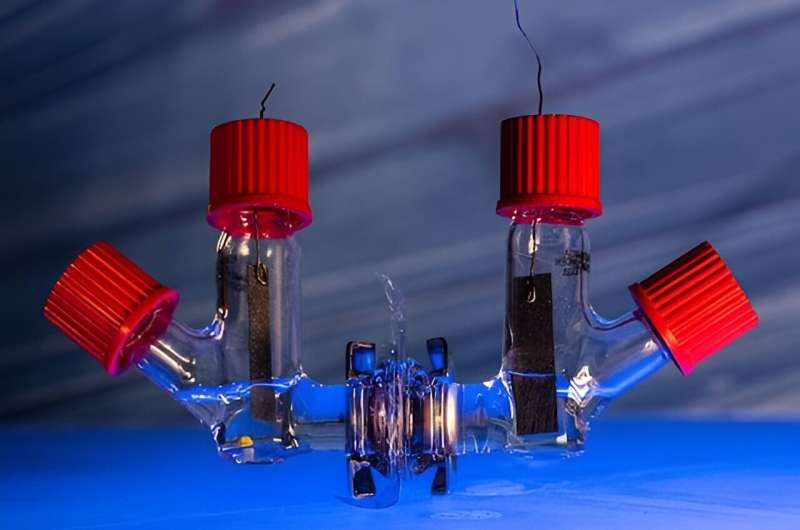This article has been reviewed according to Science X's editorial process and policies. Editors have highlighted the following attributes while ensuring the content's credibility:
fact-checked
peer-reviewed publication
trusted source
proofread
Point-of-care therapeutics sensor could make automated dosing systems universal

Rice University synthetic biologists have found a way to piggyback on the glucose monitoring technology used in automated insulin dosing systems and make it universally applicable for the monitoring and dosing of virtually any drug.
In a study in Nature Communications, researchers in the lab of Caroline Ajo-Franklin demonstrated the technique by modifying a blood-glucose sensor to detect the anticancer drug afimoxifene, an estrogen inhibitor that patient's bodies also make after they take the chemotherapy tamoxifen.
By building on mature biosensing technology that's commercially available at most drug stores for under $20, Ajo-Franklin's team hopes to speed the development of automated dosing systems for chemotherapies and other drugs as well as other technologies for real-time monitoring of biomarkers in the blood.
"The dream is to have technology similar to what's available today for monitoring and treating variations in blood glucose and have that be true for basically any drug," said Ajo-Franklin, a bioscientist, cancer researcher, and director of the Rice Synthetic Biology Institute. "Millions of people use blood-glucose monitors every day. If we can use that same basic technology to monitor other drugs and biomarkers, we could move away from the one-size-fits-all dosing regimes that we're stuck with today."
The heart of blood-glucose monitoring technology is a biochemical reaction in which specific proteins bind to glucose molecules and release electrons. Millions of these reactions take place within seconds, creating a small electrical current that is proportional to the amount of glucose in the blood sample.
Rong Cai, a postdoctoral research associate and the lead author of the study, tested more than 400 slightly modified versions of the electron-releasing protein and found a version that reacted with afimoxifene, reducing the current output from the glucose reaction in the blood. This allowed the team to detect the presence of afimoxifene by comparing the current produced by the regular glucose test to the reduced current from the modified test.
To demonstrate the technology in an electronic device, Ajo-Franklin's team worked with the research group of Rice engineer and materials scientist Rafael Verduzco to create an afimoxifene sensor that emitted a current when the drug was detected.
Ajo-Franklin said her lab is already working on both ways to improve the sensitivity of glucose-based drug tests and methods to rapidly identify glucose-oxidizing proteins that can detect drugs other than afimoxifene.
"The glucometer is the part that's so well-developed," Cai said. "While our target is different, it's just a matter of engineering and changing the protein on the inside. On the outside, everything will still be the same. You can still do the test with a strip or on your arm."
She said another key feature of the technology is that it produces an electrical output.
"If your signal is electrical, you can read it in your phone, store its data in your phone, send it to the cloud, whatever," Cai said. "That's the part, that marriage between electricity and biology, that is very attractive."
More information: Rong Cai et al, Creation of a point-of-care therapeutics sensor using protein engineering, electrochemical sensing and electronic integration, Nature Communications (2024). DOI: 10.1038/s41467-024-45789-9


















